|
Many of you reading this piece will be familiar with the ‘BGR’ but for those who haven’t heard about
it, It’s a fell running challenge in the Lake District, starting and finishing at Keswick Moot Hall, 42 Peaks, 66 miles and 27,000’ of climbing inside 24 hours.........BIG DAY OUT!! What you might be surprised to know is that 8 members or former members of Morpeth Harriers are members of the ‘Bob Graham Club’ having completed the challenge and received their much coveted membership certificates at the Club’s annual presentation dinner which is a right good night out.......if you can remember what one of them was?! Richard Kirby wrote a really good blog for the Harriers website about the attractions of Off Road, Trail and Fell running and when I got my latest edition of the Fellrunner magazine it became apparent that a lot of people had put their energies into taking on challenges like the BGR during last year as an antidote to missing racing. So maybe this might inspire you? The list of Morpeth Harriers completers are: August 1998 Bob Sewell (Membership No 1103) & Shaun Scott (1102) July 1999 Gordon Dixon (1135) May 2000 Kevin Bray (1141) May 2005 George McDougal (1251) July 2005 Mike Jeffrey (1274) July 2010 Allon Welsh (1594) May 2019 John Butters (2277) Taking on the BGR has increased in popularity since the publication of ‘Feet in the Clouds’ by the journalist Richard Askwith published in 2001 – it’s a great read about his attempt to ‘do’ the BGR but sets the context within the history of Fell Running. It’s humorous but informative and really educates you about the heroes, both male and female, of the sport. Back when Bob and Shaun finished in 1998 there were 38 other completers that year. In 2019 there were 122 plus John Butters (and I bet none were quicker than John)! So, what that say’s to me is, that, with the right preparation and knowledge, the BGR is achievable. Maybe not at John’s level but definitely at mine - took me 23hrs 29mins – but you know what – the only time that matters is 23.59! You need to enjoy the off road stuff and you have to be prepared to get out on the hill’s and put the time and miles in. If you’re my standard you need to stack the odds in your favour so that means getting over there, learning the route, realising that you CAN hit the split times and keep it going. You need to be accompanied by a pacer (s), on each leg to carry spare kit and food and drink and they play a vital role in keeping you going! Obviously, they need to know what the BGR is all about and what your aspirations are time and schedule wise. You need to be a bit selfish too – especially in terms of the weather – it’s the ‘odd’s in your favour thing! George McDougal will readily admit that if he hadn’t delayed for 24 hours to let bad weather pass through he would never have got round! AND do you know what? People don’t mind that because they want you to do it! Doing the training and gaining the ‘knowledge’ is all part of the experience. What do you get in return? A day your will never, ever forget! I’ve been involved in 20 BGR’s since 1998, not all successful, but everyone a memorable experience for all sorts of reasons! Lots of information on the BGR Club website here: The Bob Graham 24 Hour Club (bobgrahamclub.org.uk) Completers are asked to write an account of their experience and I have raided my archives and dug out the stories from the Morpeth Harriers who have taken on the challenge – some of them before the advent of digital photography! Unfortunately I haven’t got reports for Shaun or George. If you’re interested in knowing more then contact me, Gordon or John and we will be more than happy to try and help! I could fancy some days out in the Lakes.........??!!
0 Comments
We put the questions to 18-year-old Ross Charlton, Morpeth Harrier turned Modern Pentathlete, who is from Morpeth, where he attended KEVI, and is currently studying at Bath University How did you get into running? Well, I had started playing tennis, cricket and football but grew up being aware of the heritage of Morpeth Harriers with likes of Jim Alder, Don Speight & the Hudspiths. I'd just turned ten and thought I’d pop along to the clubhouse one Monday night and see how it went. That was mid-2012 and I’d say it’s gone pretty well so far! Can you share some early experiences? I always enjoyed training and after a modest start, gradually my results started to improve. My first ‘big race’ was the Northern Schools Cross Country in February 2014. As I got to the Northumberland tent I was a bag of nerves. Didn’t think that I’d be able to run - I was so bad. Suddenly a couple of older and more experienced lads from Morpeth Harriers, Kieran Hedley and Joe Dowd saw the state I was in and got a hold of me. “Don’t worry, we’ve all been there, you just come and warm up with us, we’ll get you to the start line, once that gun goes you’ll be fine!” They were right and I’ve never forgotten what they did for me that day. Then there was the Junior Great North Run in the September of that same year. In those days you were given an RFID chip to attach to your laces for electronic timing. Disaster struck, I hadn’t put mine in my kit bag and there wasn’t enough time to go home to get it. My Dad said: “They hand-time the podium finishers so you know what you have to do.” That focused the mind I can tell you and I came third. They actually hand time the first ten finishers but Dad has never admitted that he knew that! Who are your athletics heroes? I’ve always respected all athletes without ever having that many specific heroes. However, I do get very excited cheering on my teammates and lads that I’ve competed against. It’s been fantastic to see former training partners like Matty Waterfield, Dan Dixon and Rory Leonard do great things on National and International Stages. Further afield my so-called ‘brother’ Sam Charlton from Wallsend has done the North East proud as did the Durham lads, Henry Johnson, Dan Joyce and Will Bellamy who all ran in the Senior UK Championships 800m last year. But I think that the real heroes are our coaches, who turn out come rain or shine to direct training and support us at events; and there’s the folks who set up the courses, the officials etc because without all of them, we’d have no events to show what we can do. What do you consider to be your best performances for the Harriers? Best team performance as a Morpeth Harrier would have to be winning the Northern Cross Country Team Award in 2019 with Dan Melling, Rowan Bennett and Tom Balsdon. We just got pipped for a medal at Sutton Park in the National Road Relays a few months earlier and that would be a close second. Also, the banter in the car on the way home from Birmingham made that trip a classic!! Best Individual would be my 3000m run at Stretford in September 2020. I worked hard through the summer without being able to compete much because of Covid 19 but my 3000m time of 8.38, which was the 18th fastest time in the UK Under 20 category when I’d only just turned eighteen, helped make up for it. What has been your biggest disappointment so far? That’s an easy one, I was robbed of the chance to revise for weeks and sit my A Levels because of Covid 19. I was gutted I tell ya! (answer followed by prolonged laughter). Can you give us a couple of funny stories from your junior athletics career? I’ll start with the 2016 North East Cross Country Championship at Aykley Heads. I was running in the Under 15 race and came into the home straight in third place. My Dad could see behind me was one of my best mates, Henry Johnson from Houghton Harriers, coming up like a steam train. Dad went apoplectic warning me. As Henry went past me, Dad let out an expletive. I won’t repeat it but go listen for yourself, it’s still on YouTube: His site is John Charlton, just click on the Video tab and scroll back to 2016. It reminds me a bit of the Kevin Keegan outburst when he ‘lost it’ and that race has a lot more views than any of the others he recorded! The other one would be English Schools Cross Country 2019 at Temple Newsam. I have a mate called Will Tighe, known as ‘Billy Whizz’, who ran for Derbyshire Schools. He has a girlfriend who lives not far from where we sometimes train - at the Rising Sun Country Park, Wallsend. Anyway, because Will was coming up to see her, I’d arranged a lift for him on the Northumberland Schools bus. However, whilst we had a short warm down and got on the bus, unbeknownst to us Will elected to go for a long warm down with his team-mates from Derbyshire. He was nowhere to be found. Time was getting on so reluctantly we had to accept that we’d have to leave him. The bus was pulling out of the grounds of Temple Newsam, when Dan Melling screamed, “That’s him. He’s coming!” In the distance Will was literally like Billy Whizz in the Beano, sprinting after us. We were killing ourselves laughing but happily the bus driver pulled over and he made it. After running a long, hard cross-country in the mud, we all agreed that Will’s burst of pace was the most impressive athletics performance of the day! You are now involved in Modern Pentathlon which is a sport not widely understood in the UK despite us having considerable success in recent years. Tell us how you became aware of it and how your interest developed? To understand the sport, we need to go back in time. The Ancient Olympics in Greece included the Pentathlon which was five disciplines that a soldier might need. I think it was Wrestling, Javelin, Discus, Long Jump and a short run. When the Modern Olympics were founded by Baron Pierre De Coubertin, for the 1912 Games he introduced the Modern Pentathlon using five disciplines which a cavalryman might need behind enemy lines. So now it’s a 200m swim, show jumping on a horse unknown to the rider, a one hit fencing competition, pistol shooting and a 3,200m run. As of the 2012 London Olympics, the run & shooting were combined into the Laser Run which is to hit 5 targets with a laser pistol at 10 metres followed by an 800m run, repeated four times. PentathIon GB run local ‘starter’ events like the Biathlon (separate 100m swim, followed by a 1600m run). I did one at Hexham in about 2015 and from there I was invited to a National Biathlon at Crystal Palace. My Dad was very keen to see me run there because of his boyhood obsession with the ‘Golden Age’ which included Seb Coe, Steve Ovett and Steve Cram! So we made a family weekend of it in London. Newcastle Fencing and Shooting Club learned of my involvement and invited me to a few trial sessions and I just really enjoyed it. My Fencing & Shooting coach suggested that I entered the National Tetrathlon (no Show Jumping). I’d only been there a few weeks and I got annihilated in the fencing! Going into the Laser Run I was dead last. However, I ran and shot well and ended up with mid-table respectability. So I thought, “hang on, I can do this!” Bath University is the blue riband university for the sport in the UK: tell us how what selection for it involved? I’d say that Bath and Loughborough are the top sporting universities in the UK (Dan Melling and Rory Leonard would never forgive me if I suggested anything different!) Bath has certain events where it is the Centre for Excellence such as Rugby, Winter Sports and Modern Pentathlon. I’ve been on the Pentathlon Junior Talent Program for a few years now and in order to train with the best Juniors and Seniors, you need to be at Bath Uni. So my UCAS application form looked a bit odd, it only had one university on it! Lockdown notwithstanding, what does a typical week's training look like at present?
Talk us through some of the specific requirements and skills required for each of the five elements. How hard it is to be good at every single one, and does a pentathlete just have to accept that you'll better at some than at others?
Great question! People often come at Pentathlon from different backgrounds. Some through the Pony Club and many through swimming. I’m a little unusual because I was primarily a runner. How hard is it to be good at each event? There’s no getting away from it, it’s a lot of hard work. Fortunately for me, I love all the disciplines so it’s a labour of love. In terms of performance, yes the athlete has to accept that he/she will be better at some of the disciplines. The idea is to exploit your strengths and minimise your weaknesses. The thing that makes it interesting is points are awarded in the swim, show jumping and fencing. These then translate into a handicap for the combined laser run. So someone who is an ace swimmer and fencer would have a big head start but could be caught by someone who is a fast runner and good shot. Where you finish the Laser Run is where you finish the whole Pentathlon event. |
Archives
October 2021
Categories |
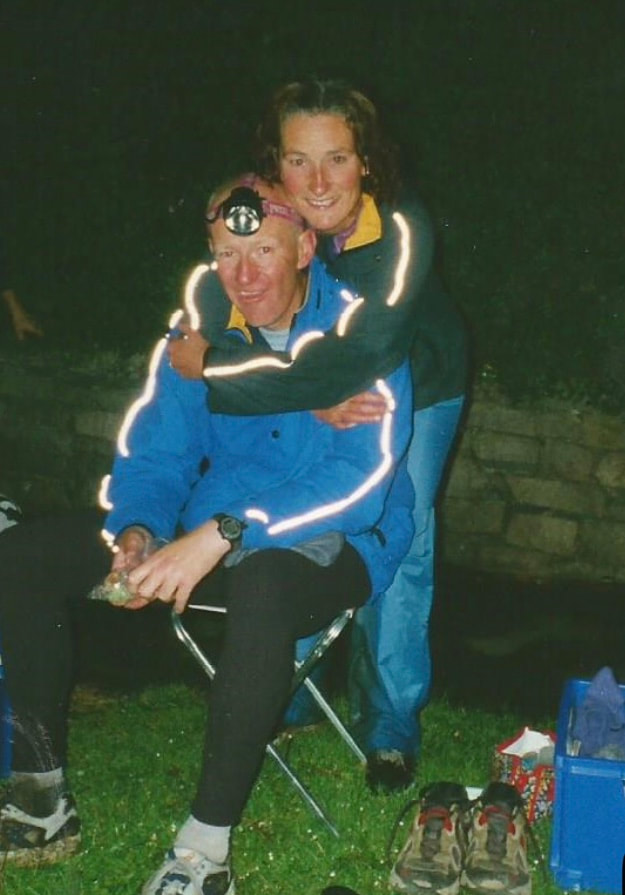
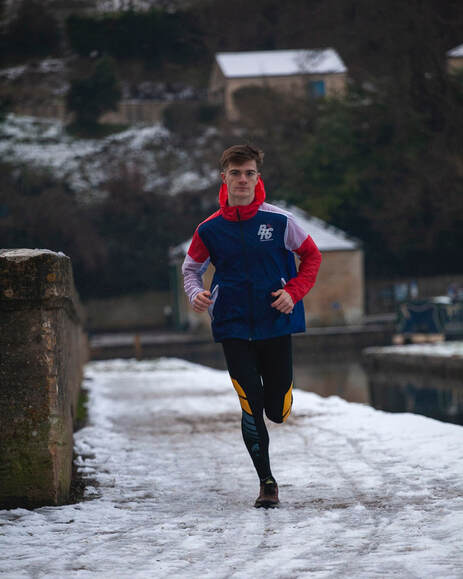
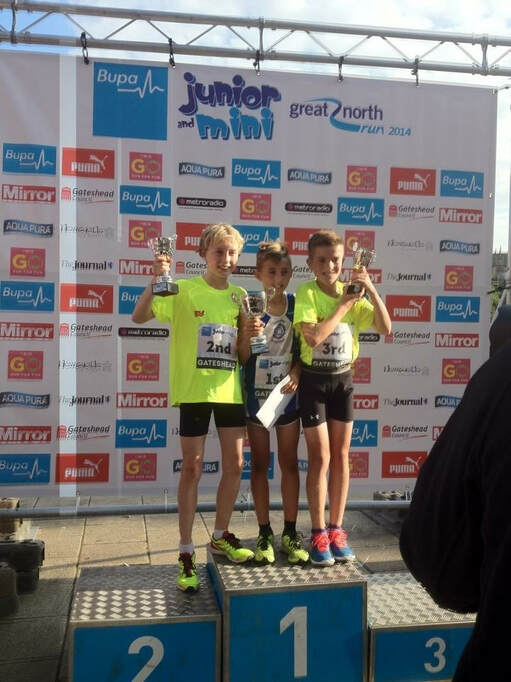
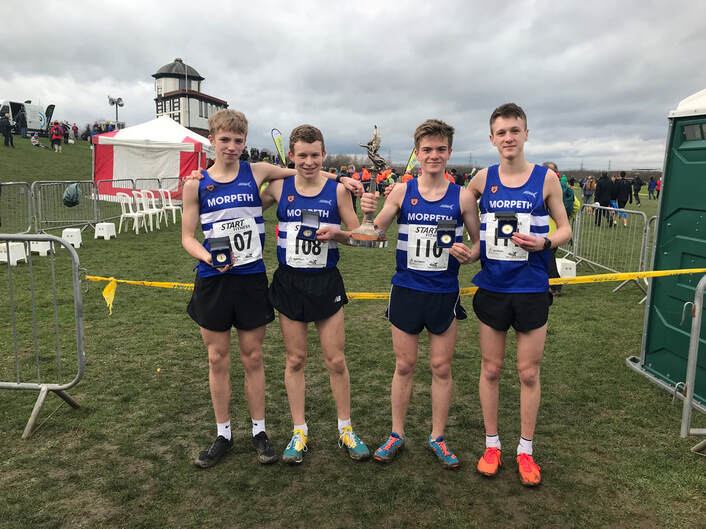
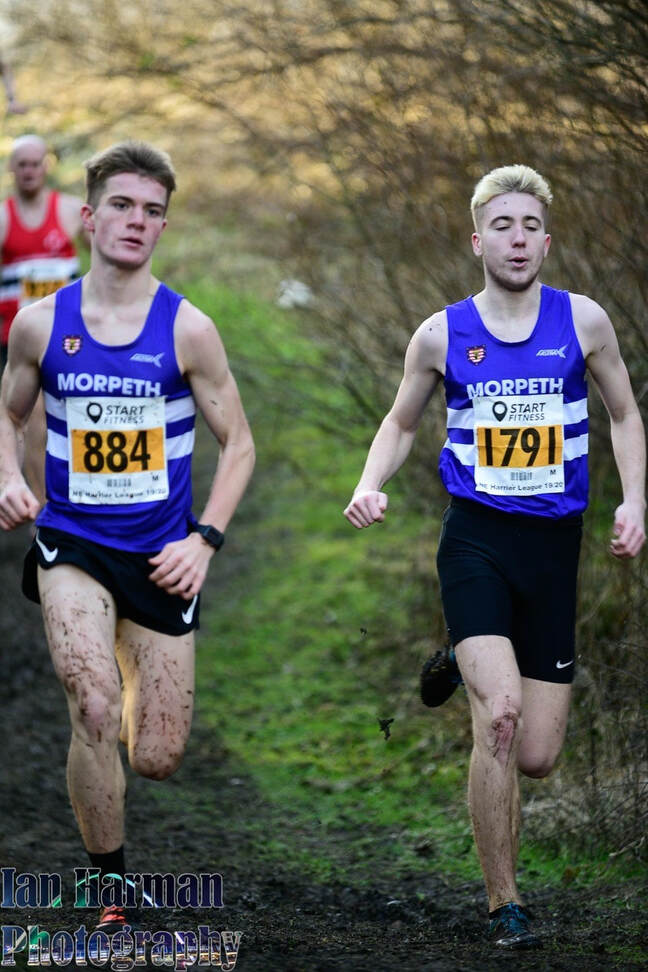
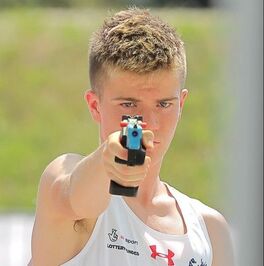
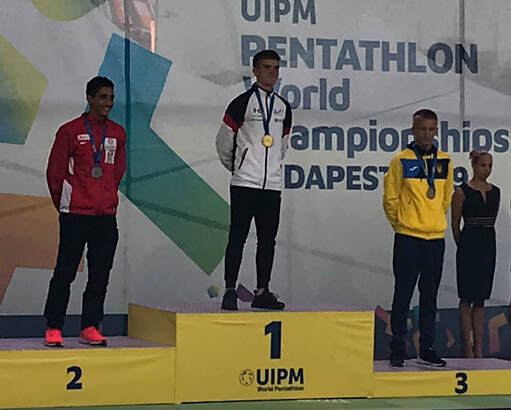
 RSS Feed
RSS Feed